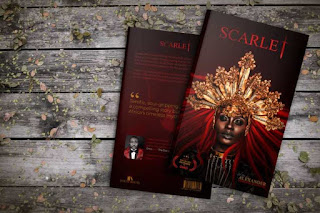Reviewer's rating:
4.5 on a scale of 5
Genre: Historical nonfiction
At the dawn of independence in 1960,
everything seemed possible for Africa's most populous and arguably, most
powerful nation. Oil wells promised an endless flow of wealth, fertile land
produced enough to feed its people, coupled with the fact that Nigeria
single-handedly held half the entire manpower of West Africa.
As was common across post-independence Africa, the army
strongmen who seized power six years later were seen by many as defenders of
this vision of prosperity. Thus, Nigerians of this era recall the first decade
of military rule with rose-tinted nostalgia. These were golden years of press
freedom, rivalling that of western countries. In contrast to today's bloated
and venal civil service, public workers kept the country running efficiently. But by the time the civilian government
ascended in 1979, they were grappling with the legacy of three disastrous years
of civil war and the beginnings of a downward slide into corruption. It was
during this era that "government ministry buildings would mysteriously
burst into flames just before audits, making it impossible to discover written
evidence of corruption" writes historian Max Siollun, which charts the
history of the middle decade of nearly 30 years of uninterrupted rule by ‘the
gun’ in Nigeria.
After four years of disorderly civilian
government, the population gladly welcomed the military in 1983, the uniformed
squad that saw itself as "an emergency rescue team that could be called
out to depose the civilian government any time the public got fed up with its
policies."
Nigeria’s Soldiers of Fortune: The Abacha and
Obasanjo Years looks at the regime of two men who steered the country for the
next decade, setting it on a path it is still treading today. In lucid prose,
Siollun shows how "the military doctor became infected by the ills it came
to cure," plunging Nigeria into virtual anarchy.
The book argues that understanding modern
Nigeria's apparently default state of being on the brink cannot be understood
without going back to this critical junction of military politics. Ethnic
politics that plague the civilian population crept into a military swollen more
than 20-fold on the back of the Biafra civil war. As it continues to do today,
the vast oil wealth pumping in would seduce and corrupt the new strongmen.
By the time General Muhammadu Buhari and
General Ibrahim Babangida had between them ruled for a decade, corruption
reached levels Siollun calls "spectacular." But it shows the path
Nigeria could have followed. One of the defining elements of Buhari's regime
was its anti-corruption stance. Indeed, the harsh sentences meted out to
politicians and drug traffickers cost the regime popular support. But
Babangida, who usurped him, unleashed a tide of corruption that continues to
swamp Nigeria today, elevating "settlement" – the use of state funds
to manipulate and compromise – into state policy.
Military rule eventually reached its nadir
with the infamous General Sani Abacha, the diminutive dictator with a Viagra
habit, whose death while cavorting with Indian prostitutes in 1998 sparked days
of jubilation.
Nigeria’s Soldiers of Fortune
holds a much-needed mirror to Nigeria's history, and the reflection is not
pretty. The press and ordinary folk are accomplices in the country's downward
trajectory by "welcoming news of a military coup d'etat and the overthrow
of a government they elected with characteristic jubilation."
For those less familiar with the country's
past, Siollun's meticulous research provides juicy inside details of pivotal
moments. How, for example, did Israeli intelligence officers from Mossad end up
sending an agent disguised as a TV producer in an attempt to snare an ex-regime
leader exiled in London? Why did ex-military ruler and continental heavy-weight
Olusegun Obasanjo refuse to take part in another coup?
While personal memoirs of Nigerian military
history abound, a removal from the crises enables Siollun to dismantle the
military machine that has ruled Nigeria with more objectivity than these other
tomes. Even to seasoned readers familiar with the story, the scholarly
attention to detail makes for a refreshing read. It provides a timely insight
into the same military rulers still wielding power today, either now wearing
civilian garb or from behind the scenes.
About Reviewer








